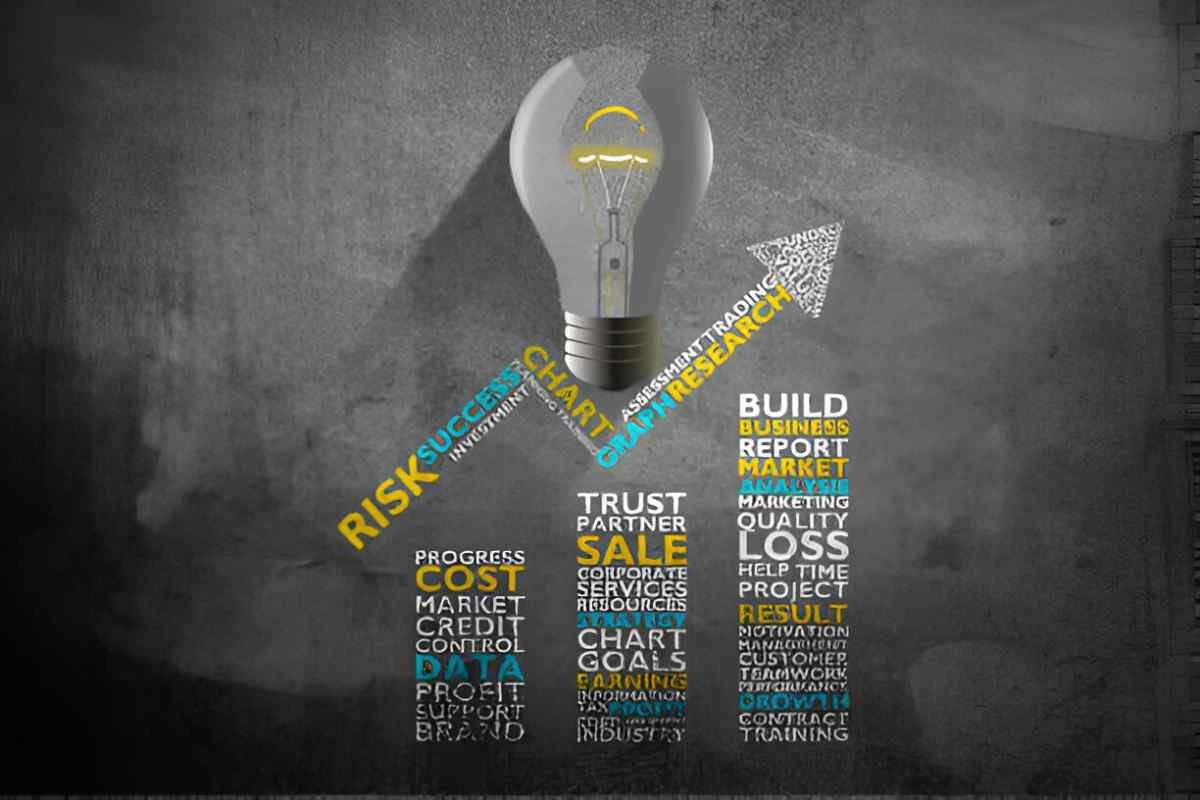Entrepreneurship is often seen through the lens of glamour, rapid wealth, and a life filled with freedom and excitement. However, as someone who has spent considerable time in the entrepreneurial world, I can tell you that the reality is much more complex and nuanced than the myths surrounding it. The misconceptions about entrepreneurship can be both misleading and damaging to aspiring entrepreneurs, especially if they do not have a clear understanding of what it truly entails. In this article, I will explore and debunk five common myths about entrepreneurship that can cloud judgment and prevent new business owners from achieving success.
Table of Contents
Myth 1: Entrepreneurs Are Born, Not Made
One of the most pervasive myths is that successful entrepreneurs possess some inherent, unteachable quality—a natural knack for business. People often assume that individuals like Steve Jobs, Elon Musk, or Mark Zuckerberg were simply born with the “entrepreneurial gene.” While it’s true that some entrepreneurs may have unique traits like creativity or risk tolerance, these qualities are not exclusive to them, nor do they guarantee business success.
In my experience, entrepreneurship is a skill set that can be learned, honed, and perfected over time. Many successful entrepreneurs started with no more than a strong desire to learn and adapt. They faced the same challenges and obstacles that any beginner would. Through trial, error, and continuous learning, they developed the critical skills necessary to succeed, including leadership, financial management, marketing, and problem-solving.
Here’s an example: I started my first business with no prior experience in managing finances. At first, I struggled with creating cash flow statements and understanding how to manage operating costs effectively. However, after spending hours researching, reading books, attending seminars, and seeking advice from experienced mentors, I gradually gained the knowledge necessary to manage my business’s finances effectively. Over time, I became better at forecasting, budgeting, and making data-driven decisions.
Key Takeaway: Entrepreneurs are made through education, persistence, and learning from both successes and failures, not born with an innate ability.
Myth 2: You Have to Be Rich to Start a Business
Another common myth is that entrepreneurship requires a large amount of capital upfront. Many people believe that starting a business demands an abundance of savings, investment from venture capitalists, or a rich network of friends and family. While it’s true that some businesses require significant startup capital, not all businesses need large sums of money to get off the ground.
In fact, one of the most significant advantages of modern entrepreneurship is the access to affordable tools, technologies, and resources that reduce the barrier to entry. With the rise of online platforms, freelancers, and cloud-based services, it has become easier than ever to start a business with little initial capital.
Take, for example, the rise of e-commerce businesses. When I first started my online store, I didn’t need a physical storefront or extensive inventory. Platforms like Shopify and Etsy made it easy to set up an online shop, and I could purchase products from suppliers on demand, eliminating the need to invest in bulk inventory. Additionally, marketing through social media platforms like Instagram or Facebook was free or very low-cost compared to traditional advertising methods.
Example Calculation: Let’s say you want to start an online dropshipping business. The costs might break down like this:
| Expense | Estimated Cost |
|---|---|
| Website setup (Shopify, domain, etc.) | $300 |
| Marketing (ads, social media) | $200 per month |
| Product sourcing (on-demand) | Varies |
| Miscellaneous (software tools) | $50 per month |
Initial costs: $300 + $200 = $500 for the first month. Ongoing costs will depend on the marketing budget and the number of products you sell, but starting with minimal capital is very feasible.
Key Takeaway: You don’t need to be rich to start a business. Many successful entrepreneurs begin with limited capital and gradually reinvest their profits.
Myth 3: Entrepreneurship Is a Fast Track to Wealth
It’s tempting to think that entrepreneurship leads to instant wealth. The stories of startups growing into billion-dollar companies in just a few years make the path to riches seem almost guaranteed. However, this myth is far from the truth. The majority of entrepreneurs struggle for years before they see significant returns, if they ever do.
Entrepreneurship is a long-term commitment that often requires years of hard work, reinvestment, and sacrifice before substantial financial rewards are realized. In fact, many entrepreneurs pay themselves minimal salaries in the early stages of their businesses just to keep the company afloat.
I can speak from personal experience—when I launched my first business, I wasn’t immediately rolling in profits. Instead, I spent years building relationships with customers, experimenting with pricing strategies, and fine-tuning my product. Only after investing significant time and effort did I start seeing a steady increase in revenue.
Let’s illustrate this through a simple example:
| Year | Revenue | Profit Margin | Salary Taken |
|---|---|---|---|
| Year 1 | $50,000 | 5% | $0 |
| Year 2 | $120,000 | 10% | $20,000 |
| Year 3 | $250,000 | 15% | $30,000 |
In this example, the business starts small, and while revenue increases, the profit margin and salary taken remain low for the first few years. This illustrates that growth is gradual, and wealth doesn’t happen overnight.
Key Takeaway: Entrepreneurship requires patience. It takes time to build a successful business, and wealth typically comes after years of hard work and reinvestment.
Myth 4: Entrepreneurs Don’t Have to Answer to Anyone
Many people assume that entrepreneurs enjoy complete freedom and autonomy. After all, they own their business and make all the decisions, right? While it’s true that entrepreneurs have control over their business, this doesn’t mean they don’t have anyone to answer to.
In fact, entrepreneurs often have to answer to a wide range of stakeholders, including employees, customers, investors, suppliers, and even government authorities. For example, when I started my own business, I had to ensure compliance with tax laws, employment regulations, and industry standards. I also had to listen to feedback from customers and adjust my offerings to meet their needs.
Here’s a quick illustration of the various groups an entrepreneur may need to report to:
| Stakeholder | Type of Responsibility |
|---|---|
| Customers | Quality of products/services, customer support |
| Investors | Financial performance, growth prospects |
| Employees | Work conditions, compensation, company culture |
| Government/Regulatory Authorities | Compliance with taxes, licenses, etc. |
Key Takeaway: Entrepreneurship involves accountability. Entrepreneurs must answer to several stakeholders, making it necessary to balance freedom with responsibility.
Myth 5: Entrepreneurs Don’t Have Work-Life Balance
Another myth I often hear is that entrepreneurs are always working. The image of a relentless business owner working around the clock is deeply ingrained in popular culture. While it’s true that entrepreneurship demands hard work, it’s not a recipe for burnout or an unsustainable lifestyle.
In fact, one of the key advantages of entrepreneurship is the ability to shape your own work schedule. The freedom to work from anywhere, set your own hours, and pursue personal interests is one of the reasons many people are drawn to starting their own businesses.
When I first became an entrepreneur, I found myself overworking and neglecting my health and personal life. However, over time, I realized the importance of creating boundaries and prioritizing self-care. Now, I make it a point to take regular breaks, spend time with my family, and pursue hobbies outside of work.
Key Takeaway: Entrepreneurship allows for flexibility. With proper time management, it is possible to maintain a healthy work-life balance.
Conclusion
Entrepreneurship is not for the faint of heart, but it’s also not as daunting as many myths suggest. By understanding the reality behind the myths, aspiring entrepreneurs can make better-informed decisions and avoid common pitfalls. Whether it’s realizing that entrepreneurship is a skill set, not an innate gift, or acknowledging the slow and steady nature of growth, debunking these myths can lead to greater success in the business world.
The entrepreneurial journey is a marathon, not a sprint. By approaching it with patience, resilience, and a realistic understanding of what it entails, you can unlock the full potential of your business and achieve long-term success.





